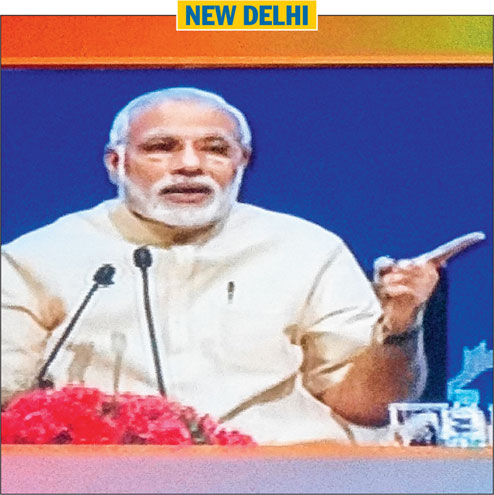
Xi Jinping
New Delhi, Aug. 4: India's foreign ministry today chose silence as its shield in the face of a barrage of questions on the border standoff with China, underscoring a sharp contrast with Beijing's repeated, threat-laced detailing of its views on the tension.
The Chinese embassy here had yesterday suggested that Indian troops entered the disputed Doklam plateau without the approval of Bhutan, which, like China, claims the territory. On Wednesday and Thursday, China asserted that India had withdrawn most troops.
The Chinese embassy said Beijing had twice - on May 18 and June 8 -- informed New Delhi about its plans to extend a road in the Doklam plateau well before the construction that began on June 16 sparked the face-off, questioning why India hadn't articulated concerns then.
But foreign ministry spokesperson Gopal Baglay today said he could not confirm or deny whether India had sought Bhutan's permission before entering the disputed plateau, whether India had reduced its troops there and whether China had informed India in advance.
"I want to clarify," Baglay said. "I can neither confirm nor deny."
India had said in a June 30 statement that its troops had entered the plateau in "consultation and coordination" with Bhutan.
But Bhutan, in its only public statement on the standoff, did not refer to Indian troops and did not say that it had asked India to intervene on its behalf - silence that China has since cited to suggest that New Delhi acted unilaterally.
Asked today whether India would seek Bhutan's approval before deciding on a diplomatic resolution with China, Baglay said: "We consult regularly with our friends in the Royal Bhutan Government." He did not clarify if India had specifically sought Bhutan's permission before its troops entered Doklam.
China had said Indian troops at the disputed spot, 400 at their peak, totalled 48 on Thursday.
Baglay said today: "These are operational matters and we do not share operational details."
The government usually does not make public troop numbers during an ongoing operation because it may compromise tactical positions. But, in this case, the argument is puzzling since the Chinese soldiers, sitting metres away from the Indian troops, already know their number.
Asked specifically about the Chinese claim on informing India of the road construction in advance and whether India had made any diplomatic effort to prevent the stand-off, Baglay said: "I am not prepared to go into diplomatic interactions."










